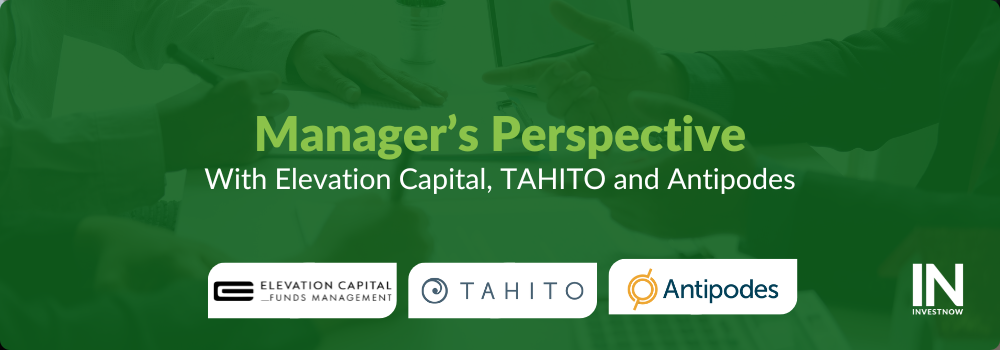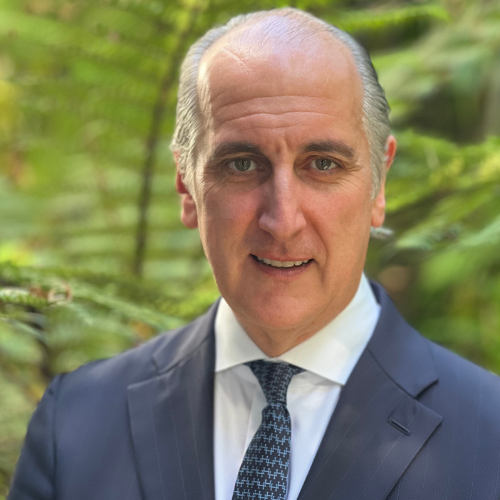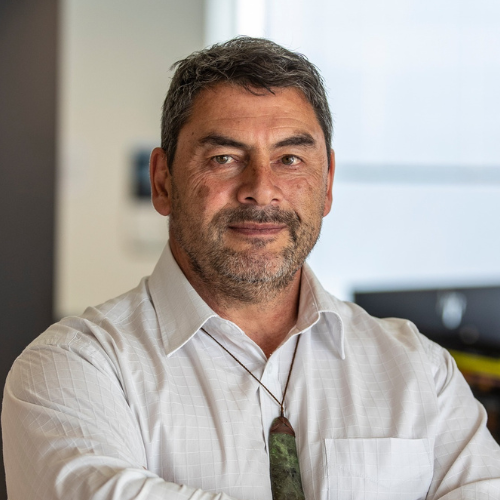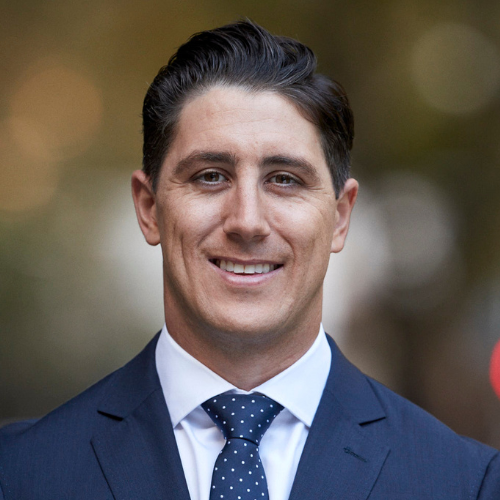
Building Wealth the Buffett Way
Welcome to the May 2025 Manager’s Perspective. Each month, InvestNow invites our investment managers to discuss our monthly theme. This month, we asked Elevation Capital Funds Management Limited, TAHITO and Antipodes some questions to help you better understand their investment styles, strategies, and perspectives on mastering Buffett’s investing wisdom in today’s markets. Read the questions and their responses below.
Chris Swasbrook,
Director
Elevation Capital Funds Management Limited


Q1: Warren Buffett famously said, “Our favourite holding period is forever.” How do you balance the pursuit of long-term compounding with the need to adapt to rapidly changing markets?
We look to invest in companies that are “inevitables” — lots of things in markets change, including at the moment the pace of technology. We have no idea what will happen with AI or automation in the coming years. It’s like throwing darts blindfolded while standing at the edge of a cliff. We’d rather not do that. So, we look for what won’t change in the world — people will always listen to music, which is why we own companies like Universal Music Group and Spotify. People will continue to drink despite the naysayers. People will continue to need entertainment — so we own companies like Disney. It’s much easier to sleep well at night when you know what you own is aligned with what won’t change.
Q2: Buffett said, “It’s far better to buy a wonderful company at a fair price than a fair company at a wonderful price.” How do you define a “wonderful business” in your process, and how do you avoid overpaying for quality?
You know, a wonderful business is always something that can be run by an idiot and it’ll still make money. So, let’s unpack that — if it’s that good of a business, it has to have some kind of moat or barrier to entry. You want a large barrier to entry. You also need to be sure that barrier will be in place for some time — at one point Kodak had a moat, but it didn’t matter when digital cameras came along. Often these “wonderful” companies will come with high net profit margins, or a high return on invested capital, but it’s important to note that those come as a result of being a wonderful company.
In our experience there are two business models we understand really well. The first is the scarcity model: i.e. sell a premium product and make it about status and a dream, rather than product. Hermes does this very well. The other model that works is a business that is integrated almost everywhere and commands a royalty on what they produce — i.e. Visa takes 0.25% per every transaction, and UMG takes royalties every time a song in their catalogue is played.
In saying that, a wonderful business like McDonald’s traded at over 100x earnings at the start of the 1970’s and in spite of its earnings increasing every year in the double digits, you would’ve lost money if you had purchased the equity at the start of that decade. Price matters. But here’s the thing: you can’t get fixated on price too much. Companies like Microsoft and Costco looked expensive at the start of the 2000s and you would’ve lost out had you not invested. This is why it’s important to look at your return on invested capital — if a company is earning 20%, it’s going to end up with a “hell of a result” (to paraphrase Charlie Munger) sooner or later.
Q3: He also warned, “It’s only when the tide goes out that you learn who’s been swimming naked.” What risks in today’s market do you think are being overlooked because of easy money or speculative trends?
The obvious one is the AI CapEx bubble — companies are investing heavily into AI infrastructure, and it is clear from the progress that companies like Alibaba and DeepSeek have made with their models that you don’t need as heavy investment (consider this: the CapEx cost of Mag 7 companies is now more than what “big oil” spends, proportionally). Tech companies have traditionally been capital light — now they are coming to an age where they require constant investment, which will reduce their profitability. We are also very cautious of Private Equity — PE is like a game of pass the parcel — sell your asset to another fund, hold it for five years, then sell it again. It’s a great model for a time, because your investor’s returns only seem to go up as one asset is “passed” to another PE fund. But as you may remember from playing pass the parcel as a child, eventually the music stops.
Disclaimer: Elevation Capital Funds Management Limited is a Registered Financial Service Provider in New Zealand in accordance with the Financial Service Providers (Registration and Disputes Resolution) Act 2008 — FSP # 1007386. Elevation Capital Funds Management Limited is licensed under the Financial Markets Conduct Act 2013 as a manager of registered schemes. Elevation Capital Funds Management Limited does not provide personalised investment advisory services to the public. Nothing herein should be construed as a general advertisement of investment advisory services or a solicitation of prospective clients for investment advisory services. The information herein is intended solely to provide certain background information which may include Elevation Capital’s investments on behalf of the Fund/s or Separate Accounts it manages or advises on. Elevation Capital Funds Management Limited, its directors, employees and agents believe that the information herein is correct at the time of compilation; however, they do not warrant the accuracy of the information. Save for any statutory liability which cannot be excluded, Elevation Capital Funds Management Limited further disclaims all responsibility or liability for any loss or damage which may be suffered by any person relying on any information or any opinions, conclusions or recommendations contained herein whether that loss or damage is caused by any fault or negligence on the part of Elevation Capital Funds Management Limited, or otherwise.
Temuera Hall
Co-founder and Managing Director
TAHITO


Q1: Warren Buffett famously said, “Our favourite holding period is forever.” How do you balance the pursuit of long-term compounding with the need to adapt to rapidly changing markets?
At TAHITO, we share Warren Buffett’s belief in long-term investing, but we take it further by investing with future generations in mind – what we call the intergenerational principle.
Our Māori values-based approach naturally focuses on the long term because indigenous thinking considers the impact of today’s decisions on our children and grandchildren. This is embedded in our value of “Kawa – tō ora” (Cyclical success), which looks at whether companies can create sustainable growth that benefits not just today’s shareholders, but society as a whole for years to come.
What this means for you as an investor:
- We’re not chasing quick profits or market trends
- We look for companies that will still be thriving and contributing positively to society in 10, 20, or 50 years
- We focus on businesses that reinvest in their communities and environment, creating a foundation for sustained growth
Our investment process naturally adapts to changing markets because we prioritise companies with strong values and ethical foundations. These businesses tend to be more resilient during tough times because they’ve built genuine relationships with their customers, employees, and communities.
We also use our V-score system to ensure the companies we choose have solid financials – strong returns, sustainable growth prospects, and manageable debt levels. This financial discipline, combined with ethical strength, gives us confidence in holding these investments for the long term while they compound value for our investors.
Q2: Buffett said, “It’s far better to buy a wonderful company at a fair price than a fair company at a wonderful price.” How do you define a “wonderful business” in your process, and how do you avoid overpaying for quality?
We agree with this philosophy, though our definition of “wonderful” goes beyond just financial performance.
A wonderful business in our view:
- Cares about relationships – They genuinely value their customers, employees, and the communities where they operate
- Acts responsibly – They understand their business impacts others and make decisions considering the bigger picture
- Seeks balance – They don’t just focus on profits but try to balance the needs of all stakeholders, including the environment
- Operates with integrity – Their leadership demonstrates strong ethics and transparency
- Gives back – They contribute meaningfully to their communities and take care of the environment
These qualities matter because they create businesses that customers want to support, employees want to work for, and communities want to welcome. This usually translates into more sustainable profits over time.
We avoid overpaying through:
- Comparing current prices to historical averages for each company
- Looking at dividend yields to ensure we’re getting reasonable income
- Focusing on companies with strong balance sheets that don’t rely too heavily on debt
- Taking a long-term view that prioritises sustainable growth over short-term excitement
Remember, truly wonderful businesses often cost a bit more, but their quality usually justifies a reasonable premium. We’re looking for companies where that premium makes sense given their long-term potential.
Q3: He also warned, “It’s only when the tide goes out that you learn who’s been swimming naked.” What risks in today’s market do you think are being overlooked because of easy money or speculative trends?
This quote captures what we’re seeing in today’s market – many companies look good on the surface but lack genuine substance.
Key risks we’re watching:
“Greenwashing” and empty promises – Many companies talk about sustainability and social responsibility but don’t actually embed these values in how they operate day-to-day. When economic pressure hits, these superficial commitments often disappear first.
Too much debt and unsustainable dividends – Some companies are borrowing heavily or paying dividends they can’t afford just to keep shareholders happy in the short term. This works fine while markets are good, but becomes dangerous when conditions tighten.
Taking without giving back – Companies that extract value from communities and the environment without regenerative contributions in return may find themselves in trouble when public sentiment shifts or regulations tighten.
Lack of genuine relationships – Businesses that view customers, employees, and communities as just numbers on a spreadsheet, rather than partners in long-term success, are vulnerable when loyalty matters most.
Our approach protects against these risks by:
- Looking for companies with genuine, long-term commitments to doing good
- Favouring businesses with strong balance sheets and conservative financial management
- Investing in companies that have built real relationships and community support
- Focusing on businesses that operate in harmony with their environment and stakeholders
When the next downturn comes – and it will – we believe companies with authentic values, environmental conciseness and strong community connections will be much better positioned to weather the storm.
Disclaimer: This is for information purposes only. It does not take into account your investment needs or personal circumstances and so is not intended to be viewed as investment or financial advice. Should you require financial advice you should always speak to your Financial Adviser. Before investing you should read the TAHITO Te Tai o Rehua Product Disclosure Statement and Statement of Investment Policy and Objectives, available at www.tahito.co.nz and www.companies.govt.nz/disclose. Past performance is not indicative of future results and no representation or warranty, express or implied, is made regarding future performance. Reference to taxation or the impact of taxation does not constitute tax advice. The levels and bases of taxation may change. This has been prepared from published information and other sources believed to be reliable, accurate and complete at the time of preparation. While every effort has been made to ensure accuracy, neither Clarity Funds Management, nor any person involved in this publication, accept any liability for any errors or omission.
Sam Kazacos
Investment Specialist
Antipodes


Q1: Warren Buffett famously said, “Our favourite holding period is forever.” How do you balance the pursuit of long-term compounding with the need to adapt to rapidly changing markets?
Understanding change is critical when investing in any asset. Failing to understand the change that is taking place in a company, a sector or the broader macroeconomic landscape risks capital destruction, and managing risk and protecting capital is a big part of our investment process at Antipodes.
Antipodes is a Pragmatic Value manager, and the engine room of our investment process is fundamental stock picking. However, we do believe that value can be maximised from taking a wholistic bottom up and top town approach. Our research process integrates our fundamental stock picking with top down quant and macro analysis to maximise returns for our clients. As a result our research process thinks about change in two layers: at the macro – or market – level and at the stock level.
At the broader macro level, our quant and macro team focus on identifying emerging trends or changes in macroeconomic dynamics that can impact the market. These insights will inform, rather than drive, our fundamental research and our final portfolio positioning.
For the fundamental work, our starting point is always deep industry analysis, with the goal of understanding change that is taking place in the industry. This could be cyclical, structural or socio macro change. Once we understand the change that’s occurring we are able to determine the potential winners and losers over our investment horizon, and position for these outcomes. If a company is constantly adapting to the change taking place in its industry then our holding period can be forever – this is a great outcome! However, a focus on understanding change also allows us to identify when a company is being out-competed by its peers and its business is becoming less resilient. Avoiding exposure to these sorts of companies is also a great outcome as it means we avoid owning value and growth traps.
Q2: Buffett said, “It’s far better to buy a wonderful company at a fair price than a fair company at a wonderful price.” How do you define a “wonderful business” in your process, and how do you avoid overpaying for quality?
At Antipodes, we believe that investment returns are primarily a function of i) the economic performance of the business you own and the durability of this performance (i.e. business resilience) and; ii) the price paid per share (which is one of the only things within an investor’s control).
In recent years, we have seen the perception of continued dominance in market share and sustainability of competitive advantage drive the willingness to own ‘quality at any price’, particularly around the termed ‘Magnificent 7’ technology stocks and a cohort of US- consumer facing companies. Whilst many of these companies are indeed wonderful businesses, it raises the question whether the market has and continues to overpay for quality, and in particular where the growth profile offered is not commensurate with the elevated multiple being paid. At present, quality as a factor continues to trade at a near 25x P/E multiple – a significant premium to the 20-year average of 17.9x.
Antipodes definition of a “wonderful” business is synonymous with business resilience. Simplistically, the more resilient the business is, the lower the overall idiosyncratic investment risk. In our assessment of business resilience, we look to avoid the temptation to analyse a company through tick-box exercise-like research, and instead consider the overall margin of error on key assumptions. It’s important that we acknowledge that in certain circumstances there’s so much change impacting an industry, we have no way of knowing whether the market is in fact irrational. However in the assessment of the underlying business resilience we look for what we term ‘multiple ways of winning’ which flows from our industry analysis. This assessment includes an evaluation of competitive and product cycle dynamics, industry regulation, company management and incentives, macroeconomic tailwinds/headwinds, ESG factors and at a stock level, a detailed analysis of key financial and balance sheet risks.
Overall, Antipodes investment philosophy is defined as what we call Pragmatic Value. In essence, paying the right price relative to our assessment of a company’s resilience, or how wonderful we think a business is and its growth profile. Importantly, just because a company is trading on a low valuation, doesn’t preclude the company from being a resilient business, just as a company trading on a high multiple doesn’t mean it is overvalued. Antipodes’ approach seeks to avoid both value traps and growth traps resulting in a portfolio that includes low P/E companies, often GDP-like growers facing little risk of disruption, as well as secular growth winners that may be valued at an optically high multiple, however are attractive relative to their business resilience and growth profile.
Q3: He also warned, “It’s only when the tide goes out that you learn who’s been swimming naked.” What risks in today’s market do you think are being overlooked because of easy money or speculative trends?
In our view, the risk remains that Trump’s shock therapy approach to re-industrialisation is just too much for the US or the global economy to bear and the US stumbles into stagflation or something worse, a credit crisis. Investors should note that it is very unusual for the US equity market to fall at the same time bond prices fall, that is yields increase, and the USD sells off. The market is starting to price in a much higher risk premium into holding US assets.
The US has been exceptional due to both structural and cyclical forces. The cumulative fiscal deficit in the US from 2016–2023 was more than 50% of GDP versus 25% in Europe and 35% in China. US exceptionalism needs to be normalised for what has been an exceptional amount of spending, which cannot continue at the same pace with government debt at 120% of GDP. Ultimately, US exceptionalism is definitely being questioned.
We are very mindful of two significant tail risks: the growth in carry trades across the market and rapid expansion in institutional private asset exposure. The most obvious example of the former is the US Government Bond market basis trade, and the partial recent unwind which has led to bond market volatility and credit dislocations. The latter comprises the institutional love affair with illiquid private assets and the correlated risks sitting in private equity portfolios dependent on private credit and the asset owners such as insurance companies and pension funds that invest in both sides of this highly leveraged balance sheet.
Today’s starting multiple of US equities is still over 21x earnings, with tariffs yet to be factored into bottom-up forecasts. Asset prices will not only be impacted by earnings per share (EPS) downgrades but also a higher discount rate that will be applied to compensate for Trump’s ‘imperial court’ style approach to policy, which suggests US volatility is likely to remain elevated. We have seen this playbook before in China where policy became unpredictable with President Xi’s ‘Common Prosperity’ programme.
We began to position our funds more defensively from the middle of February as we observed uncertainty around US policy was increasing. We trimmed recent long winners that were either cyclical (predominantly European financials, industrials and commodities) and some positions we viewed as crowded positions. Capital was recycled into domestic defensives, healthcare and Latin America as well as retaining an overweight in gold.
If conviction increases that the growth shock is real, we will continue to lean into the defensive allocations in our portfolio. We remain comfortable with our current portfolio tilts given the range of outcomes remains very wide, and we are reluctant to become too bearish at this point. We are cognisant the Federal Reserve can respond via injecting liquidity into the market, the US will generate revenue from tariffs which could lead to further tax cuts, and there will be some stimulus out of Europe and China.
As at 30 April 2025, the Antipodes Global Fund (PIE) and Antipodes Global Value Fund (PIE) delivered 12.0% and 7.9% benchmark relative outperformance respectively over the calendar-year-to-date (net of fees, in NZD).
Disclaimer: Consider risk profile and other information in the Fund’s PDS available at antipodes.com or the issuer FundRock NZ Limited on www.fundrock.com, and on https://disclose register.companiesoffice.govt.nz/.
Speak to a financial adviser before investing. General information that doesn’t consider personal circumstances.
Disclaimer
The following commentaries represent only the opinions of the authors. Any views expressed are provided for information purposes only and should not be construed in any way as an offer, an endorsement or inducement to invest. All material presented is believed to be reliable but we cannot attest to its accuracy. Opinions expressed in these reports may change without prior notice.
This article is made available by InvestNow Savings and Investment Service Limited (“InvestNow”). The information and any opinions in this publication are based on sources that InvestNow believes are reliable and accurate. InvestNow, its directors, officers and employees make no representations or warranties of any kind as to the accuracy or completeness of the information contained in this publication and disclaim liability for any loss, damage, cost or expense that may arise from any reliance on the information or any opinions, conclusions or recommendations contained in it, whether that loss or damage is caused by any fault or negligence on the part of InvestNow, or otherwise, except for any statutory liability which cannot be excluded. All opinions and market commentary reflect InvestNow’s judgment on the date of this publication and are subject to change without notice. This disclaimer extends to any entity that may distribute this publication. The information in this publication is not intended to be financial advice for the purposes of the Financial Markets Conduct Act 2013, as amended by the Financial Services Legislation Amendment Act 2019. In particular, in preparing this document, InvestNow did not take into account the investment objectives, financial situation and particular needs of any particular person. Professional investment advice from an appropriately qualified adviser is recommended before making any investment decision. All investments involve risk.

Leave A Comment